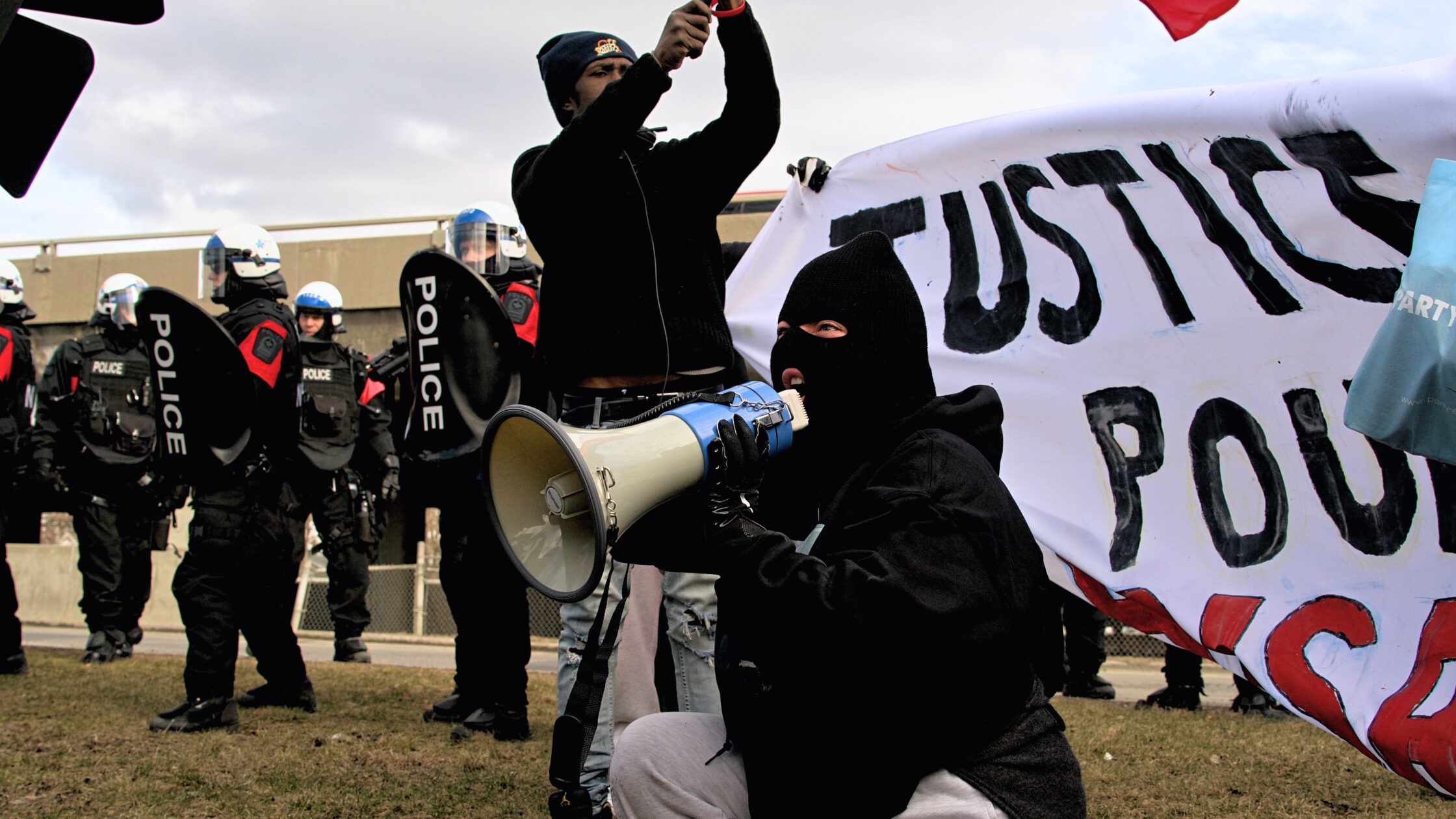Pepper spray, tear gas, violent arrests: this is how the SPVM greeted a peaceful march on Sunday in Montreal‘s Saint-Michel neighbourhood. Over 300 people were gathered to denounce the death of Abisay Cruz, killed by police during a crisis intervention on March 30. Six people were arrested and several others injured.
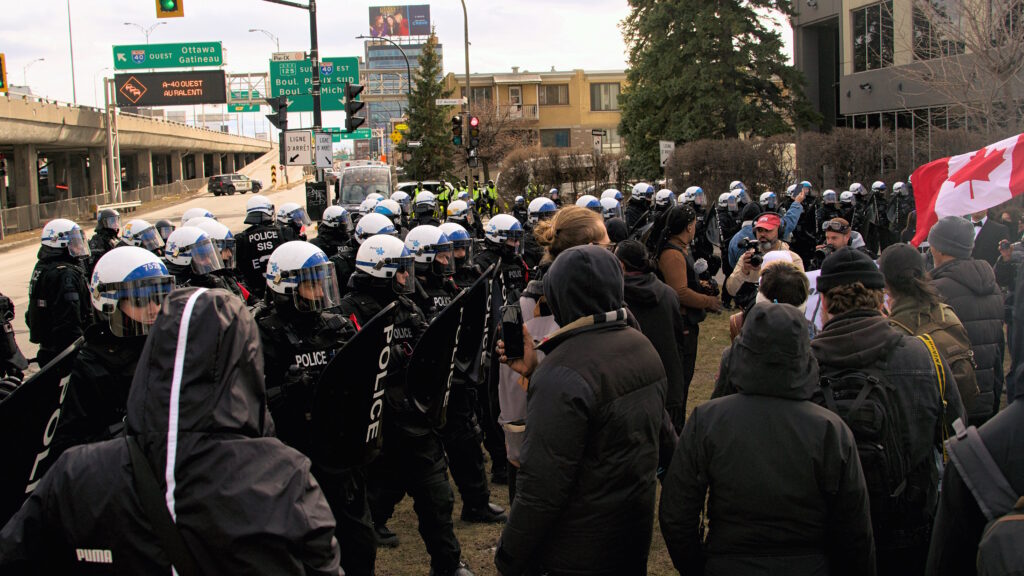
The march started in front of Cruz’s apartment block, where the fatal intervention occurred. His family members, along with residents from all over Montreal, gathered to speak out.
“Today, we’re here to protest. We’re here to ask questions, because there are a lot of unanswered questions. We’re worried because we were promised that things would change… But today, we’re scared,” says Stéphanie Germain, Executive Director of Éduconnexion.
Cruz who celebrated his 29th birthday two weeks before his death, was a Honduran immigrant and father to a nine-year-old son. Andy, a friend of Cruz, gave The North Star insight into his character:
“We all have our difficulties in life, but he was positive. He wasn’t looking for trouble. He did all his business properly… I don’t understand why it got to this point. He was a good person.”
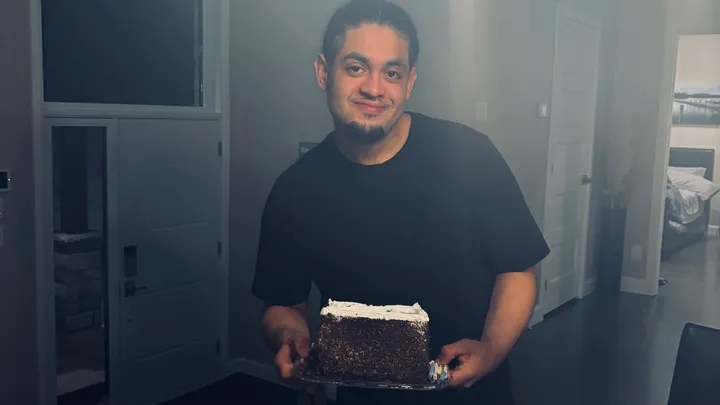
Cruz had previously faced criminal charges, but Daphné, a friend of Cruz, reminded the crowd that this doesn’t justify his death: “Just because we have a criminal history, they’re going to use that against us. But that doesn’t mean anything. Whether you’re black, whether you’re made of chocolate, fuck! It means nothing! We’re doing this for Abisay, for justice… because it’s likely to happen again because the mayor’s office, the SPVM keeps taking it out on us.”
Abisay’s death, which was captured on a cellphone video from the balcony of his neighbour, occurred within 24 hours of two other police killings in Quebec City and Montreal. This intensification of police violence has prompted a response from many community groups.
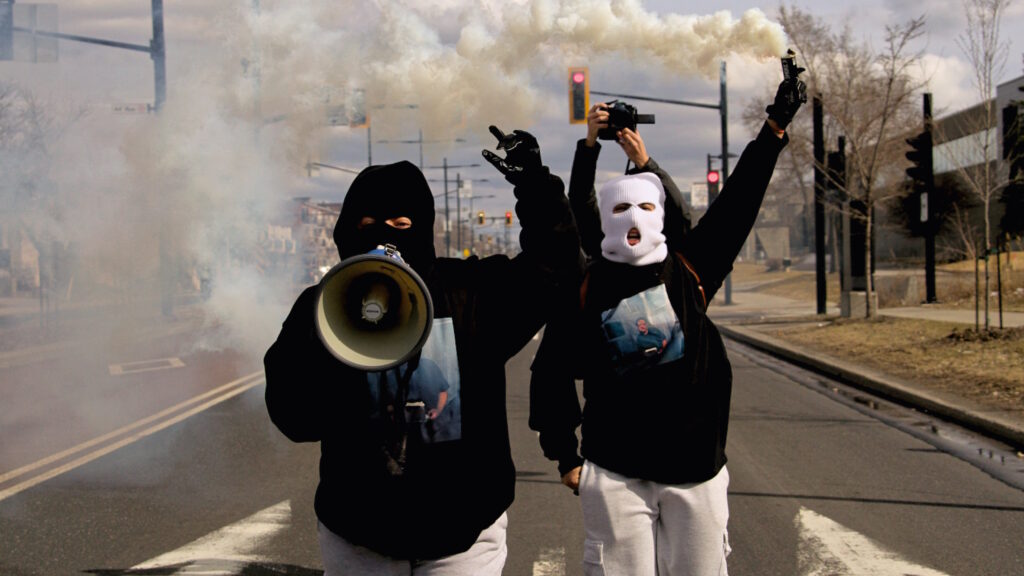
“Everyone who organizes in their community, everyone who mobilizes, we all do an enormous amount of work to make our neighbourhoods safe. We all do an enormous amount of work with our young people so that they grow up safe, so that they respect the laws, but unfortunately today, we ask ourselves the question: what is the role of the police if it’s not to protect?” Germain says.
The SPVM reported that there were no injuries during the march on Sunday. However, a North Star reporter on the ground observed multiple injuries caused by the violent arrests and riot police pushing people to the ground while they were trying to run away from tear gas. There were also dozens of bystanders waiting for the bus on Pie-X Boulevard who got caught in tear gas smoke and had to seek refuge in nearby businesses.
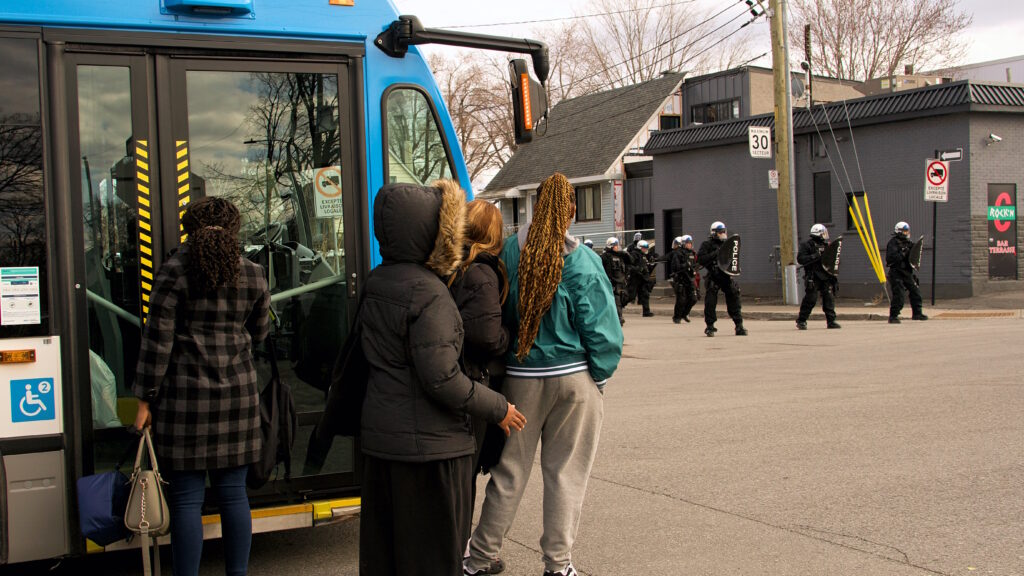
“We saw family members being pushed around, being gassed. It’s so violent that it’s happening in the context of a protest in which we’re talking about someone who’s been killed by these very people. Then when you see how people who march peacefully are treated, it makes you feel rage,” says Phat, who participated in the march and spoke to The North Star.
On Tuesday, the SPVM openly called for calm following Sunday’s march. But Phat doesn’t believe the police should be the ones telling people how to act in this moment.
“They don’t want us to throw garbage cans in the street, they don’t want us to burn things, they don’t want us to break windows… but this violence, it comes from somewhere. For me, it’s rooted in an oppressive system.”
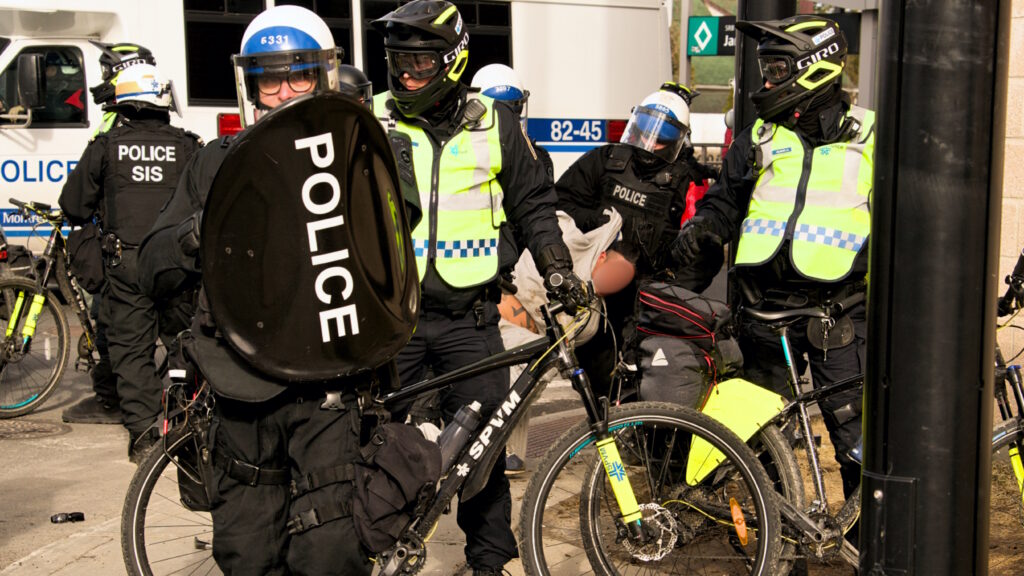
Phat grew up in the nearby neighbourhood of Montreal-Nord, a working-class neighbourhood where almost half the population is made up of visible minorities, mainly of Haitian, North African and Hispanic origin, and is a community that is no stranger to police violence. In August 2008, Fredy Villaneuva, an 18 year-old Honduran immigrant, was shot and killed by an SPVM officer, sparking massive riots in the neighbourhood. The march was held on what would have been Villaneuva’s 35th birthday, and members of his family and community were in the crowd.
“In 2008, when it happened to my boy Fredy, there were no cameras. I think the people, now, have reacted to it. They’re angry, they’re upset. They want to do something to change things. Because we go through this every day,” explains Angelo Prestige, who knew Villaneuva.
“We’re talking about Pie-IX, Saint-Michel, Montreal-Nord, you understand? These are all neighbourhoods where you have the same issues, issues of social class. There’s an intersectionality between poverty and immigration. These neighbourhoods are so marginalized by state forces like the police and others,” says Phat.
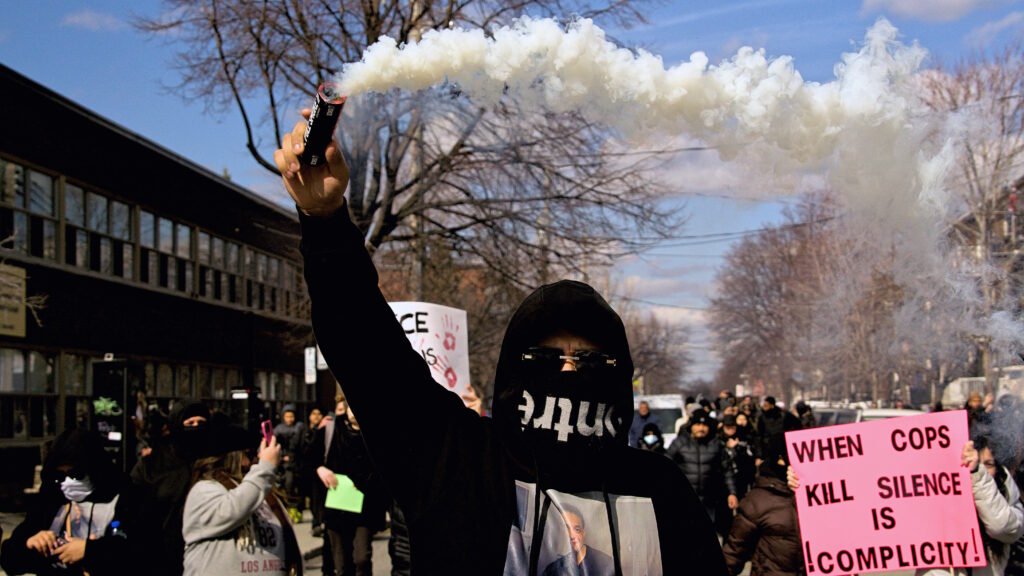
Pointing to the crowd, Prestige says: “I think we just wanted to be heard today. And they realized we were a force they’d forgotten about. We were just dormant. Today, they realized, ‘Damn, this could go off.’ Because if they keep doing what they’re doing, it’s going to go off again.”
“When you put on pressure, you have to open the valve. We’ve opened the valve ourselves, and we’re now slowly releasing the pressure.”
